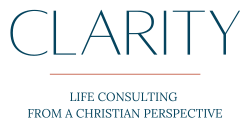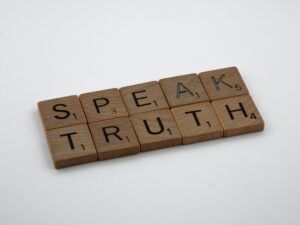(Learn to Discern, Principle #15)
Have you ever been in the midst of an agonizing decision, and had someone offer this annoying piece of advice: “It’s really simple! What do you actually want?”
And you can’t answer the question, because the whole point of why the decision is agonizing is that you don’t know what you want? And even if you did know, you aren’t sure it would be the right thing? And you kind of want option A, but another part of you wants option B?
The struggle is real.
Knowing your own desire is key in the discernment process.
Why?
Because you are the one making this decision. You want to make it with God’s help, yes, and that’s a wonderful thing. But God isn’t making the decision on your behalf. He respects your free will too much for that.
Which means that what you want is actually essential in discernment. Not because it is an infallible guide, but because it is always a major factor in every decision we make.
Think about it. Why do you choose one thing over another?
Sometimes, it’s just a matter of straight up desire. I want to eat M&Ms instead of Skittles.
Other times, it’s a desire for something more. I want to lose some weight, so I will eat salad for dinner instead of a cheeseburger. I might want the cheeseburger, but I want to lose weight even more. The desire for something more wins out.
And sometimes, it can even be a desire to gain some control over our own desire! I want to eat a second slice of cake, but I want to grow in self-discipline, so I won’t.
No matter what, desire is motivating our choices in the discernment process—which is why it is crucial to know it! (Knowing how much weight to give it, and whether you can trust it, is a different thing.)
But now we’re back to the beginning: what about when you just don’t know what you want?
Lots of things can get in the way of us being attuned to our desires. If you aren’t embracing silence regularly, or aren’t in the habit of paying attention to your body, start there. If you don’t know yourself, or how you tend to be, now is the time to start.
Here are some other things that might be interfering with knowing what you really want.
||ONE|| A false idea of the relationship between God’s will and our will. Sometimes as Christians we spend so much time praying that “God’s will and not my will” be done, that we forget that the two aren’t always opposed! My will is opposed to God when it desires something evil or sinful. But the closer I grow in my relationship with God, the more I become like Him. I am conformed to Christ more and more. Which means that my will is naturally becoming drawn to things that are good. We may have been told our whole life to ignore our desires, so we can’t accept that God might actually be moving us through them.
||TWO|| Believing desire is irrelevant. There is right and there is wrong and what I want has nothing to do with it. That’s true… until there are multiple “right” things. Many goods to choose from. Then what? Something has to prompt you to choose one over the other, and that thing is going to be desire. We’re not robots. God designed us to be creatures with free will, which allows us to freely choose between good things.
||THREE|| Struggling with the “shoulds” – I should want to do this. I should feel like doing that. And while there are definite shoulds in the Christian life, they’re usually to do with the big picture of living in the Kingdom of God. Within that Kingdom? We live with “the freedom of the sons of God.” How much do we live that freedom? How much are we acting out of a desire to please others, to not disappoint anyone, or to live up to cultural expectations, instead?
||FOUR|| Fear. We are secretly afraid that what we desire is the “wrong” choice, so we bury it deep, hiding it even from ourselves. It’s possible to desire something that is actually wrong, like wanting to harm someone. It’s also possible to think that desiring something “less” good is wrong: but it’s not. (Think of the student who wants to study music instead of business, like her parents are pressuring her to do.) There are right and wrong things. But most of us are trying to choose between things that are good. Letting fear hold us back from speaking our desire means letting fear be the biggest factor in our discernment: but fear is a false friend and terrible guide in most situations.
Note: It’s important to be able to speak our desires even when they are for something that is actually wrong. If we can’t be honest about it, how can we bring it to God for healing? That’s what confession is for.
||FIVE|| Fear of regret. We are afraid that our desire will lead us to choose something we might regret in the future, because we might desire something different in the future. The truth is, it is very likely that we will desire something different in the future! We aren’t one-dimensional beings. The good news is twofold.
First, most decisions that feel permanent, aren’t. We can always adjust where we live, what we study, what kinds of jobs we have.
Other decisions, like getting married or welcoming a child, are more permanent. But they aren’t static. We don’t commit our lives to an unchanging thing: we commit our lives to people who will grow and develop just like we will.
If you’re having trouble knowing what you want, it’s possible that something is holding you back from being attuned to your deep desires. It’s also possible that you don’t have enough information about your options, or that you simply don’t desire any of the possibilities in front of you. If you aren’t sure, the best way to know if you want something is just to try it out.






